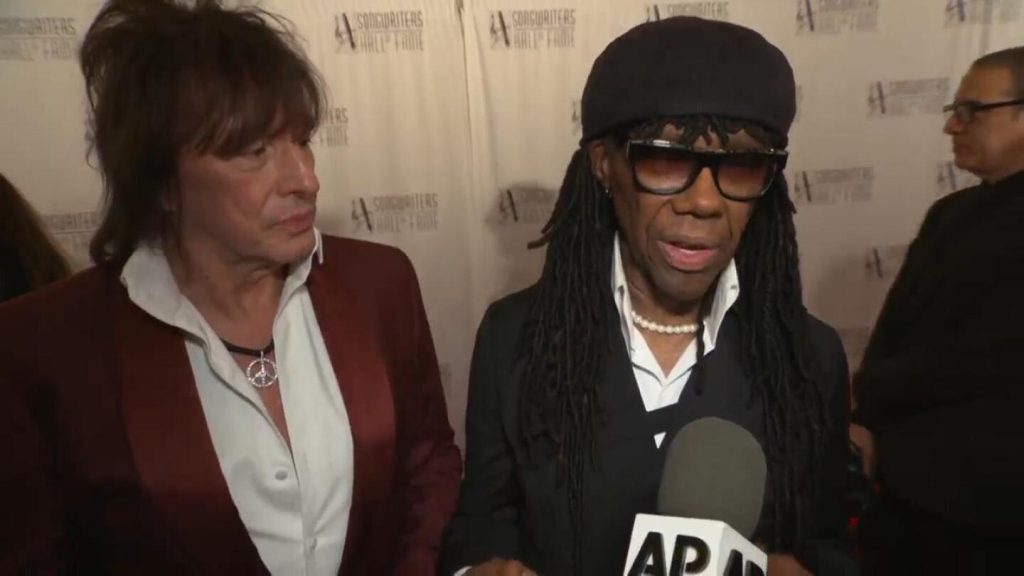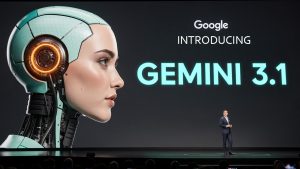Can AI Revolutionize the Music Industry? Insights from Experts

At the Songwriters Hall of Fame in New York, an intriguing conversation took place between Trey Anastasio of Phish and Nile Rodgers. The topic on the table? The role of artificial intelligence in the music industry. As AI technology continues to evolve, it brings exciting possibilities and complex challenges.
While AI’s capabilities are expanding rapidly, from composing music to enhancing live performances, it also raises questions about creativity and authenticity in music. These industry veterans offered their unique perspectives on whether AI can assist, complement, or even compete with human creativity. Their insights provoke thought about the future of music and the delicate balance between innovation and tradition.
The Role of AI in Music
AI is making waves in the music industry by taking on tasks that were once reserved for humans. From composing music to analyzing song structures, AI’s capabilities are expanding rapidly. Nile Rodgers believes that AI can assist in the creative process, helping artists to innovate and push boundaries.
However, the question remains whether AI can completely replace human creativity. Trey Anastasio points out that while AI can generate music, it lacks the emotional depth and personal touch that human artists bring to their work. This sentiment resonates with many in the industry who see AI as a tool rather than a replacement for human ingenuity.
AI in Live Performances
Live performances are another area where AI is being experimented with. AI-driven light shows, visual effects, and even holographic performers are becoming more common. These technologies can add a new layer of excitement to live concerts, enhancing the overall experience for audiences.
Yet, there is skepticism about whether AI can truly ‘sell out’ a venue like Madison Square Garden. Anastasio argues that the connection between artist and audience is something that AI cannot replicate. The energy, emotion, and spontaneity of live performances are elements that are inherently human.
Despite these concerns, some artists are embracing AI for live shows. They see it as a way to augment their performances, offering fans a unique and futuristic experience. These artists believe that AI can coexist with human creativity, each complementing the other.
AI’s Impact on Songwriting
Songwriting has always been a deeply personal and creative endeavor. With AI’s entry into this space, the way songs are written is changing. AI can analyze vast amounts of data to identify patterns and trends, providing songwriters with valuable insights.
However, some worry that relying too much on AI could lead to a homogenization of music. If everyone is using the same algorithms, will all songs start to sound the same? This is a concern for those who value originality and diversity in music.
Rodgers and Anastasio both express a cautious optimism about AI’s role in songwriting. They acknowledge that while AI can be a powerful tool, it should not overshadow the human element that makes music so special. By combining AI with human creativity, songwriters can explore new possibilities without losing their unique voice.
Ethical Considerations
As with any technology, the use of AI in music raises ethical questions. Who owns the rights to a song generated by AI? Can an AI-generated song be nominated for awards? These are just a few of the questions that industry leaders are grappling with.
Moreover, there are concerns about job displacement. Will AI take over roles that were traditionally held by humans, such as composers and producers? While AI can handle certain tasks more efficiently, it is crucial to consider the impact on employment in the music industry.
Rodgers emphasizes the need for ethical guidelines to navigate these challenges. He believes that the industry should work together to establish standards that ensure the fair and responsible use of AI in music. This includes addressing issues of ownership, compensation, and the protection of human jobs.
Social Media Influence
Social media platforms are playing a significant role in the discussion about AI in music. Artists use these platforms to share their thoughts, experiments, and collaborations with AI. This openness fosters a community of innovation and exploration.
Fans are also engaging in the conversation, expressing their excitement or concerns about AI-generated music. Some are intrigued by the possibilities, while others fear that the essence of music could be lost. Social media serves as a real-time barometer for public opinion on this evolving issue.
Anastasio and Rodgers both actively participate in these online discussions, offering their perspectives and insights. Their involvement helps to demystify AI for fans, making the technology more accessible and less intimidating. By engaging directly with their audience, they contribute to a more informed and balanced debate.
Future Prospects
Looking ahead, the future of AI in music is both exciting and uncertain. Advances in technology will continue to push the boundaries of what is possible, opening up new avenues for creativity and expression.
However, the balance between AI and human input will be crucial. Maintaining the human touch in music is essential for preserving its emotional and cultural significance. Artists, technologists, and industry leaders must collaborate to find this balance.
In conclusion, the integration of AI into the music industry is both an exciting and contentious development. As Trey Anastasio and Nile Rodgers highlighted, while AI offers new tools for creativity, it cannot replace the emotional depth of human artistry. The industry must find a balance, ensuring that AI serves to enhance rather than overshadow human contributions. With careful consideration of ethical guidelines and a commitment to preserving the essence of music, AI and human creativity can coexist, leading to innovative and diverse musical landscapes.





